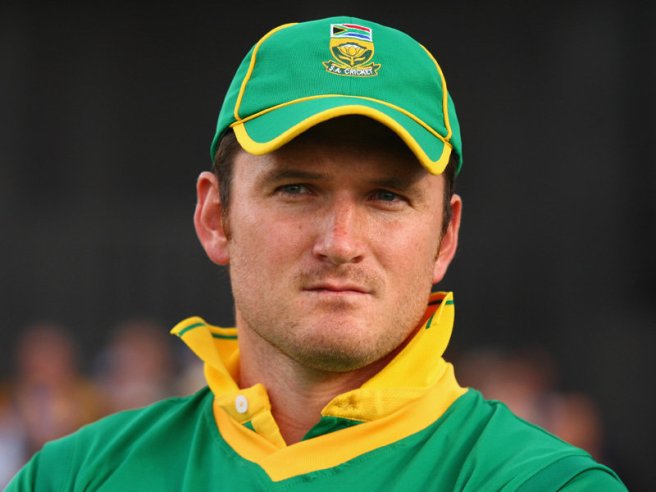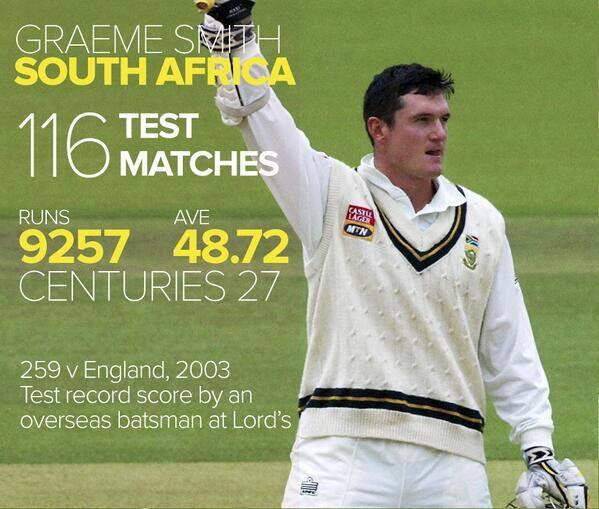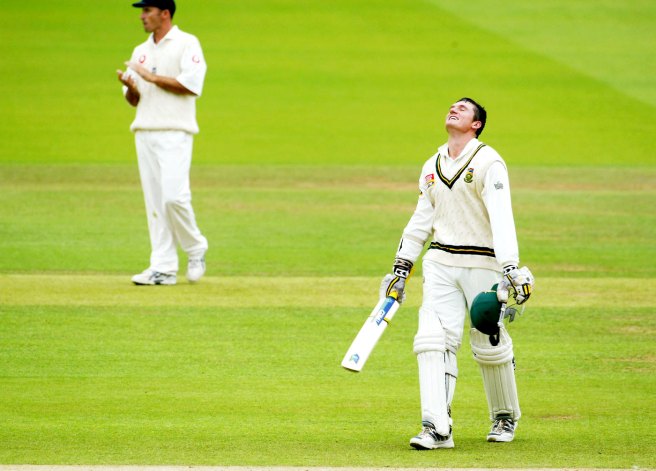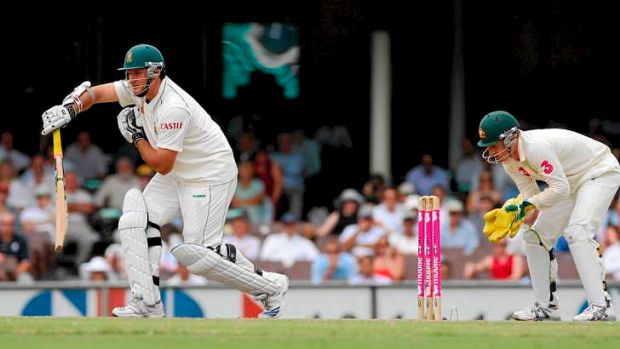People say Australians taint the game of cricket by the way they play. They are rough, they are brutal, and ruthless above all they play the game the hard way. Not every time they comply with the spirit of the game but the fans of Australia and the players definitely show a lot of appreciation for someone who takes the game to them. One such person was Graeme Smith.
A certain set of adjectives tend to come out when describing Smith the batsman, captain and man: steely, gritty, determined, proud, and competitive. They are perhaps rather faint praise for a man who has had one of the more improbable careers, not only surviving being thrown into the most perilous of deep ends, but going on against all sorts of odds to lead his side to the top of the world. International cricket captaincy is as trying a job as there is in sports, involving numerous responsibilities and numerous power brokers to be kept happy. South African cricket’s internal politics are as complicated as any, particularly with the right route toward better representation of non-white ethnic groups always open to debate, and few expected a rookie to last long in the job. Eleven years and a record 109 Tests later—16 more than even Australia’s Allan Border—he retires with his team the best in the world.

At 22, Smith was named the youngest captain in South Africa’s history and, with 52 wins from his 108 completed Tests as skipper, has led his country to more victories than any other cricketer. Since taking the reins in 2003 he has led the Proteas to the zenith of their power, climbing to the top spot in the world Test rankings. With one score over 100 (a marathon 234 against Pakistan in October 2012) and four half-centuries in his last 17 innings, Smith had not been utterly devoid of batting form heading into the current series against Australia. He only has 42 runs from five innings against the in-form Australian attack with his highest score of 14 coming in the second innings of the Proteas victory in Port Elizabeth.Despite a tame end to his Test career. Smith is undeniably one of South Africa and the game’s greats.
Statistics and Style:

His 9,257 Test runs put him second behind only long-time team-mate and fellow recent retiree Jacques Kallis’s 13,206 in the pantheon of South African batsmen. Kallis, with 47, is again the only Proteas batsman in front of him in terms of Test tons as well. His 277 against England in just his 11th Test (and third as captain) in 2003 remains his highest Test score and sits third on the list of the best innings by a South African, once again behind regular team-mates in Hashim Amla (311 not out) and AB de Villiers (278 not out). With all the focus on his captaincy, his batting sometimes gets lost, but he averaged over 50 for most of his career and played numerous match-winning innings; in particular, his performances against England in 2003 and 2008 will live long in the mind (714 runs at 79.33 in five games including consecutive double hundreds in the former, 369 runs at 61.50 in four games with two hundreds in the latter). He has caused more grief than most to England during his international career.
Never the most aggressive or innovative of captains tactically, although one who made few obvious blunders, his strength lay in the most important aspect of captaining an international side: getting his players behind him, presenting a unified front to opponents, and creating an environment where a collection of disparate talents could flourish and become a team—in other words, leadership.
It was his unmatched leadership and toughness that cemented his standing as one of the all-time greats of the game. One of the most remarkable performances for Australian audiences was his effort in 2009 in Sydney.
Graeme Smith- The Executioner
Nasser Hussain used it in July 2003 on questioned about Graeme Smith, “Wotsisname”. The Occasion was England had just thrashed South Africa by seven wickets in the ODI final, bowling them out for 107. And after the match Graeme Smith was naive to say England were “arrogant”. Nasser Hussain ridiculed the youngster about his approach and took pot-shots against South Africa.

Someone had to stand up and respond to this criticism but it wasn’t about trash talking this was supposed to be answered from the bat and the man who decided to answer was “Wotsisname”. Smith batted for a minute more than nine hours, faced 377 balls, and scored 277 runs, the highest Test score yet made by a South African. He added 85 more in the second innings, for good measure. England escaped with a draw but Hussain quit immediately after the match was over, the first in a line of three England captains who would be broken on the wheel of Smith’s will. At Lord’s three days later, Smith started all over again. This time he made 259, becoming only the fourth batsman to score double hundreds in consecutive Tests. No one ever forgot his name again.
He executed his plan and he executed this by his grit and determination not by his technique. Graeme Smith wasn’t afraid to call his shots and the first casualty was the “Zulu”, Lance Klusener and he threatened legal action against his Skipper. Smith was unperturbed and he stood his ground with the late Bob Woolmer. It should have been obvious then how tough he was, how much self-belief he had. This was a man who had pinned a list of short, medium, and long-term goals on the door of his family’s fridge as a child, and had achieved the last of them – which was to lead South Africa – before he had even really become a man.
If I had to describe Graeme Smith then I would chose 4 words for him and they would be:
“Brave. Strong. Calm. Confident.”
Graeme Smith: The bravest man to face the music at SCG

South Africa face their perennial rivals Australia and the year was 2009 and the venue SCG. After having his left hand broken by a typically brutal Mitchell Johnson delivery in the first innings and also nursing a seriously injured right elbow, Smith retired hurt on 30.Andrew Macdonald took the wicket of Dale Steyn and Aussies were closing on yet another victory over their rivals. The 376 and South Africa were almost done at 257/9 and the Aussies were overjoyed thinking the game is done and dusted and crowd yelling in madness. Suddenly, the yells turned out to be roars it turned out to be Music and now into cheers. I remember the look of Mike Hussey looking into the dressing room and shaking his head in disbelief. You know why? Graeme Smith was walking down with a broken arm and he was walking down to save the test match for his country. I will quote the exact words of what Australian Commentator Mark Nicholas said
“Wait a minute, wait a minute… what’s happening. Graeme Smith is coming out to bat and a series which has gripped us from first to last continues to do so. The drama is by no means done and THIS IS A MIGHTY FIGURE. One of the great men of the modern games and Sydney is standing to him.”
Having been roared to the centre, Smith tried to block out the pain, but it was there whenever he defended. Leaving was easier – the bowlers gave him opportunities – and he crept slowly towards the finish with Makhaya Ntini, a usually easy wicket proving impossible to dislodge. For 27 balls the pair leaned on each other and floated their country, but as Australia wondered if they would ever be able to knock down these South Africans they achieved their escape with 10 balls remaining.
A shirt was borrowed from Jacques Kallis and Paul Harris’ pullover was worn with a hamburger stain on it. He took off the plastic cast that had been protecting the fifth finger on his left hand and a re-modelled glove was put on instead. There were no painkillers. Morne Morkel laced up Smith’s spikes. Even before his finger injury simple tasks such as brushing his teeth were too painful. He started to pad up when Ntini went out to bat and the target had shrunk to 50 deliveries when he took guard. Most balls hit the bat, but Smith was unfortunate to make two mistakes. He didn’t take two when he glanced Nathan Hauritz to fine leg. Another run was there, but by collecting only one it left him facing Mitchell Johnson at the most difficult end in the following over. Playing back hurt Smith’s hand a lot more than when he had to go forward and with the second delivery of the second last over, he left a gap and Johnson’s delivery cut in off a big crack and slipped through to the stumps. Facing a rampant Johnson, every defensive stroke elicited cheers of admiration from the crowd and also forced Smith to pull his busted bottom hand off the bat. With just under two overs left in the Test, Smith dangled the bat outside a cutter from his left-armed foe and his bails were promptly sent flying. That one courageous act perfectly summed up Smith’s ability and grit and won over a whole new generation of even the most partisan Australian fans, players and commentators, while also making him one of the best number 11s to strap on a set of pads. Smith and his team-mates formed a guard of honour for the retiring veteran as he made his way out to the WACA pitch, reinforcing his status as one of the most respected men in the world of cricket.
The South Africans exhaled and Smith slowly walked up to Ntini and hugged him like a brother. Two strong-willed men had fallen less than two overs short. The Australians were in a huddle, but they soon moved over to congratulate the batsmen. Ricky Ponting said the traits Smith displayed were what everyone looks for in a leader. They were also in awe of Smith, who carries the square jaw and courage of a superhero.
Of the many incidents which this game has seen with the likes of Ken Mackay taking the final ball from Wes Hall in the chest to draw the 1960-61 Adelaide Test, Rick McCosker batting with a broken jaw in the Centenary Test, and Malcolm Marshall taking 7 for 22 at Old Trafford in 1988 with a fractured hand. This is by far as important and painful contribution by any sportsman playing for his country.
Graeme Smith reminds me of a famous Al Pacino quote from the movie Scent of a Woman:
“But there is nothing like the sight of an amputated spirit. There’s no prosthetic for that.”
Harsha Bhogle was right when he said :
Smith is not a captain…He’s a leader. A great leader. In the years that he has played RSA have had numerous big wins, and Smith is the one to have played a key role in most of those wins – the big test wins in the recent years or the 434 game. The fact that RSA have never lost a test match when he has scored a century says everything about this colossus. He may not have a great technique…but is mighty effective. What he surely has is loads of grit and determination. Graeme Smith – The greatest LEADER in the last decade. May not have a world cup, but has surely passed the “test”.
A Captain without a convincing technique for an opener but a captain who will forever be remembered for his loyalty and calling the shots like a true leader.He has been a mighty personality in the game and South Africa have much to thank him for.

